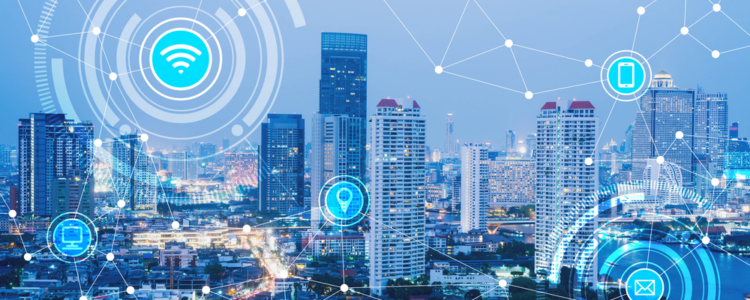Presented by : Christophe ROCHE
Date : 10 of October ; 13h30 GMT ; room B014
In recent decades, the concept of Smart City has undergone considerable development mainly due to the increasing urbanization of society and to the massive use of information and communication technologies (ICT). The rapid urbanization of cities is the source of many issues that affect the quality of life of their citizens: transportation and traffic, resources management (water, electricity), pollution and waste management, community services (hospitals, schools, amenities, social services…), etc. The smart city concept, which appeared in the 1990s following the Kyoto Protocol, is a response to these issues. The concept of Smart City embraces several definitions relying on different meanings of the word “smart” (intelligent, digital, sustainable, knowledge, ubiquitous, etc.), and there is not yet one definition universally accepted. The International Telecommunication Union defines a smart sustainable city as “An innovative city that uses information and communication technologies (ICTs) and other means to improve quality of life, efficiency of urban operation and services, and competitiveness, while ensuring that it meets the needs of present and future generations with respect to economic, social and environmental aspects”.
Smart City is based on a complex architecture of heterogeneous systems that must communicate and collaborate to achieve the objectives set. Connectivity, open data and sharing data are put forward, rising at the same time terminological and standardization issues. In this context, Ontology coming from Artificial Intelligence, understood as a “common vocabulary whose terms are formally defined”, has become a cornerstone of Smart City. Ontology provides a common understanding and a standardized vocabulary for representing cities-related facts, services, organization, flow of events and key performance indicators, allowing also alignment of different points of view (ontologies). Ontology also enables and facilitates interoperability and communication between the heterogeneous systems which compose a Smart City, providing interchange formats (ISO or W3C) and formal definitions allowing reasoning for intelligent data processing.
The talk will be illustrated with standards for Smart City (ISO 37122, BSI PAS 180:2014, IEC 60050-831) and examples of ontologies (SCRIBE, “Open 311 Ontology”).
